Исторические происшествия в Москве 1812 года во время присутствия в сем городе неприятеля - [107]
Rosenstrauch, as far as can be reconstructed from scanty evidence, was born in 1768 in Breslau, the capital of the Prussian province of Silesia. All that is known of his family and childhood is that he was Catholic and, as he wrote later, “of burgher origin.” For the early period of his life we know only that in 1788, he was married in the Westphalian town of Brilon. According to the parish register, he was a surgeon, that is, most likely a wandering barber-surgeon.
His life is documented with much greater continuity from 1790 on. By that year, he was an actor performing with troupes that traveled in northwestern Germany. He spent the years 1792–94 in the Netherlands, where he became a freemason and witnessed that country’s invasion by the armies of the French Revolution. It is also in the Netherlands, in 1792, that his son Wilhelm was born. During the period 1794–1800 he was a member of the court theater of the Landgrave of Hesse-Kassel; he also accompanied that troupe to engagements in other towns, including Mainz, where he witnessed the French siege in 1795. After separating from his wife, he left Kassel in 1800 for the court theater of the Duke of Mecklenburg-Schwerin. In 1804, he accepted a position at the German theater of St. Petersburg, a city that could support a German theater because of the presence of a large German diaspora. During his years in Mecklenburg-Schwerin and St. Petersburg, he was very active as a freemason and embraced a Pietistic form of Protestantism.
It is unclear when, exactly, he decided to give up the acting profession. Actors were outsiders in ancien régime society; their profession was widely viewed as shameful and immoral, and they suffered great socioeconomic insecurity. These circumstances are probably the reason why, in 1809, Rosenstrauch left the theater and became a merchant. Later in life, he was at pains to conceal his past as an actor. The memoir never mentions it, but it does contain hints. Several of the acquaintances whom he mentions (Czermack, Haltenhof, Suck) were theater people or musicians. Also, the narrative itself seems constructed with a theatrical sensibility: in many places it is composed of discrete episodes that resemble scenes from a play, complete with descriptions of the physical setting, dialogue, a suspenseful dramatic arc, and at times a humorous resolution.
St. Petersburg was Russia’s most cosmopolitan city and the largest port for the importation of European luxury goods, which enjoyed great popularity among the Russian upper class. Rosenstrauch traded in just such goods, first in St. Petersburg and then, starting November 1811, in Moscow, where he established his shop on Kuznetskii Most (“Blacksmiths’ Bridge”), the city’s most elegant shopping street. This was his position when Moscow was occupied by the army of Napoleon in 1812.
After the French withdrew from Moscow, Rosenstrauch rapidly succeeded in rebuilding his business. In the years that followed, he became not only a wealthy man but also a leading figure in Moscow’s German diaspora, particularly through his activity as chairman of several masonic lodges and as member of the vestry of the Lutheran Church of St. Michael. Also during this period, he became acquainted – details, unfortunately, are scarce – with leading figures at the Russian court, including Tsar Alexander I.
In 1820, evidently driven by a deepening religiosity, Rosenstrauch unexpectedly left Moscow. He went to Odessa, underwent a crash course in theology, and was ordained as a Lutheran minister in 1821. This surprising change of careers – he was already past fifty and had no university degree in divinity – was possible because the Russian government urgently needed Protestant pastors to help create order among the German settlers who were pouring into Russia’s Black Sea region. In 1821–22 he was adjunct pastor in Odessa; then, from 1822 until his death in 1835, he was pastor in Khar’kov (present-day Kharkiv in Ukraine). It is there, a few weeks or months before his death, that he wrote his memoir about Moscow in 1812. Its purpose and intended audience are unknown.
During his last years, and then in the decades after his death, Rosenstrauch gained renown as an author of Pietistic religious texts. He exchanged letters on religious themes with numerous Germans in Russia, some of which appeared in print, and he wrote a moving account of his pastoral efforts to reconcile dying sinners with Christ. The latter, originally serialized in 1833 in the Dorpat-based journal Evangelische Blätter, was published as a book in Dresden in 1845 (under the title Mittheilungen aus dem Nachlasse von Johannes Ambrosius Rosenstrauch, früherem Consistorialrath und Prediger in Charkow) and appeared in the following decades in German, Russian, Dutch, and Danish editions. It drew the interest of leading Russian writers of the 1840s–70s, including P. A. Pletnev, N. V. Gogol, V. A. Zhukovskii, and N. S. Leskov.
Readers of the Russian edition of Rosenstrauch’s book seem to have had no knowledge either of his biography or of his connection with his son, the merchant Wilhelm Rosenstrauch in Moscow. This is surprising because Wilhelm (1792–1870), who carried on the family business after his father went to Odessa, was an important and well-known figure in Moscow society. He reached the rank of “hereditary honored citizen,” the highest social status accessible to a merchant in Russia. For many years he held leading institutional positions in the German diaspora, as consul-general of Prussia (1829–66), chairman of the vestry of the Lutheran Church of St. Michael (1834–69), and member of various charitable organizations. He was acquainted with important Russian literati, such as M. P. Pogodin and P. A. Viazemskii, and his shop was so famous that it appeared in works of Russian fiction, such as the novel
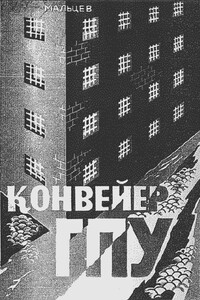
Автор — полковник Красной армии (1936). 11 марта 1938 был арестован органами НКВД по обвинению в участии в «антисоветском военном заговоре»; содержался в Ашхабадском управлении НКВД, где подвергался пыткам, виновным себя не признал. 5 сентября 1939 освобождён, реабилитирован, но не вернулся на значимую руководящую работу, а в декабре 1939 был назначен начальником санатория «Аэрофлота» в Ялте. В ноябре 1941, после занятия Ялты немецкими войсками, явился в форме полковника ВВС Красной армии в немецкую комендатуру и заявил о стремлении бороться с большевиками.
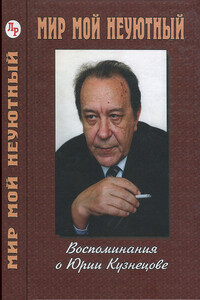
Выдающийся русский поэт Юрий Поликарпович Кузнецов был большим другом газеты «Литературная Россия». В память о нём редакция «ЛР» выпускает эту книгу.

«Как раз у дверей дома мы встречаем двух сестер, которые входят с видом скорее спокойным, чем грустным. Я вижу двух красавиц, которые меня удивляют, но более всего меня поражает одна из них, которая делает мне реверанс:– Это г-н шевалье Де Сейигальт?– Да, мадемуазель, очень огорчен вашим несчастьем.– Не окажете ли честь снова подняться к нам?– У меня неотложное дело…».
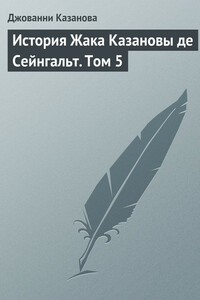
«Я увидел на холме в пятидесяти шагах от меня пастуха, сопровождавшего стадо из десяти-двенадцати овец, и обратился к нему, чтобы узнать интересующие меня сведения. Я спросил у него, как называется эта деревня, и он ответил, что я нахожусь в Валь-де-Пьядене, что меня удивило из-за длины пути, который я проделал. Я спроси, как зовут хозяев пяти-шести домов, видневшихся вблизи, и обнаружил, что все те, кого он мне назвал, мне знакомы, но я не могу к ним зайти, чтобы не навлечь на них своим появлением неприятности.

Изучение истории телевидения показывает, что важнейшие идеи и открытия, составляющие основу современной телевизионной техники, принадлежат представителям нашей великой Родины. Первое место среди них занимает талантливый русский ученый Борис Львович Розинг, положивший своими работами начало развитию электронного телевидения. В основе его лежит идея использования безынерционного электронного луча для развертки изображений, выдвинутая ученым более 50 лет назад, когда сама электроника была еще в зачаточном состоянии.Выдающаяся роль Б.
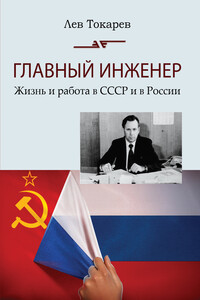
За многие десятилетия жизни автору довелось пережить немало интересных событий, общаться с большим количеством людей, от рабочих до министров, побывать на промышленных предприятиях и организациях во всех уголках СССР, от Калининграда до Камчатки, от Мурманска до Еревана и Алма-Аты, работать во всех возможных должностях: от лаборанта до профессора и заведующего кафедрами, заместителя директора ЦНИИ по научной работе, главного инженера, научного руководителя Совета экономического и социального развития Московского района г.
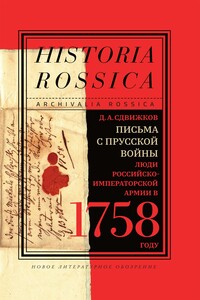
«Вы что-нибудь поняли из этого чертова дня? — Признаюсь, Сир, я ничего не разобрал. — Не Вы один, мой друг, утешьтесь…» Так говорил своему спутнику прусский король Фридрих II после баталии с российской армией при Цорндорфе (1758). «Самое странное сражение во всей новейшей истории войн» (Клаузевиц) венчало очередной год Семилетней войны (1756–1763). И вот в берлинском архиве случайно обнаруживаются около сотни писем офицеров Российско-императорской армии, перехваченных пруссаками после Цорндорфской битвы.
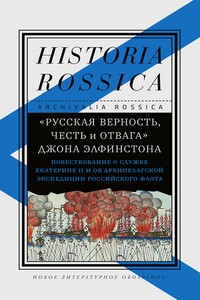
В 1769 году из Кронштадта вокруг всей Европы в Восточное Средиземноморье отправились две эскадры Балтийского флота Российской империи. Эта экспедиция – первый военный поход России в Средиземном море – стала большой неожиданностью для Османской империи, вступившей в очередную русско-турецкую войну. Одной из эскадр командовал шотландец Джон Элфинстон (1722–1785), только что принятый на русскую службу в чине контр-адмирала. В 2003 году Библиотека Принстонского университета приобрела коллекцию бумаг Элфинстона и его сыновей, среди которых оказалось уникальное мемуарное свидетельство о событиях той экспедиции.
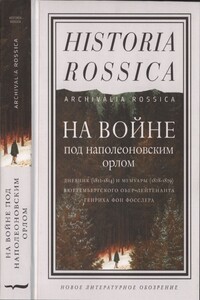
В составе многонациональной Великой армии, вторгшейся в 1812 году в Россию, был и молодой вюртембергский лейтенант Генрих Август Фосслер (1791-1848). Раненный в Бородинском сражении, он чудом выжил при катастрофическом отступлении Наполеона из Москвы. Затем Фосслер вновь попал в гущу военных событий, был захвачен казаками и почти год провел в плену в Чернигове. Все это время он вел дневник, на основе которого позже написал мемуары о своих злоключениях. До нашего времени дошли оба текста, что дает редкую для этой эпохи возможность сравнить непосредственное восприятие событий с их осмыслением и переработкой впоследствии.